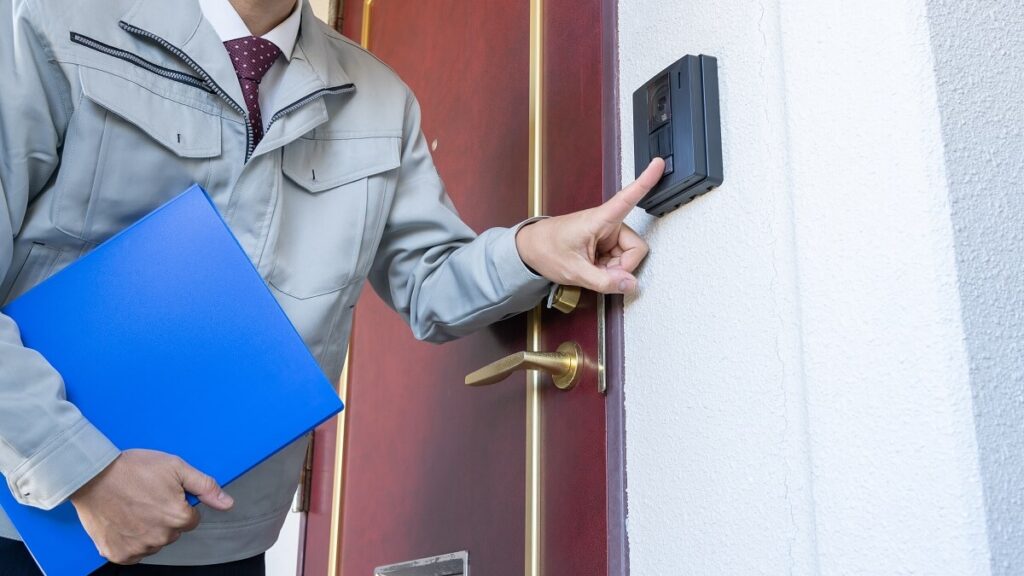If you feel stories about scammers are a constant part of news coverage these days, you’re probably right. And there’s good reason for that. The practice of scamming continues to proliferate, and scamming the elderly – often seen as soft targets – appears to be rife.
The latest examples feature scammers who target potential victims in person. These scammers are visiting homes under the guise of being a representative of the intended victim’s bank.
Their scheme is not as simple as them knocking on your door, though. They will call or text first, advising of an urgent need for the customer to withdraw funds. This need is supposedly a protective measure against an alleged internal theft at the bank.
It’s a brazen and particularly cruel way of scamming the elderly, one that deliberately takes advantage of their vulnerabilities. And it is by no means rare, as a recent report released by Queensland Police shows.
In a media release last week, Queensland Police called for public vigilance following a wave of such crimes.
The release highlighted an example from last month, in which the perpetrator was fortunately thwarted.
An intended victim had been instructed, allegedly by their own bank, to withdraw $10,000 in cash. Fortunately, the customer was suspicious and called the police. Perhaps even more fortunately, the police were able to respond immediately.
That afternoon, police intercepted and arrested a 43-year-old man at the victim’s house. The man was later charged with three counts of money laundering and one count of possessing tainted property. He was remanded in custody to appear in Maroochydore Magistrates Court in September.
Are banks doing enough?
Given changes in the banking models of major institutions in recent years, this is an entirely reasonable question to ask. The changes have involved closing many suburban and regional bank branches. And most likely people to be affected by these closures? The elderly.
For the vast majority of younger Australians, visiting a bank in person is not just unnecessary, it’s a foreign concept. They have grown up with online banking and using cards or phones for financial transactions. For them, even ATMs are an anachronism.
It is entirely understandable, therefore, that the banks are changing to suit those changing needs. But are banks, in doing so, ensuring their older customers are being serviced adequately?
Through branch closures, banks are saving a considerable amount. In round figures, these were the cash profits after tax of the ‘big four’ banks for the 2021-22 financial year:
- ANZ $6.5 billion
- Commonwealth $9.6 billion
- NAB $7.1 billion
- Westpac $5.3 billion
These are not small amounts. And while they do not specify amounts saved through branch closures, those closures will have contributed to the profits.
Part of those savings, at least, should be directed towards prevention of scamming the elderly. If that means providing continued one-on-one customer contact for previously regular branch users, so be it. At worst, this will be a transitional cost for the banks.
Remember, the last generation of suburban and regional bank branch users won’t be here forever. Our numbers are already declining!
What should we do to protect ourselves?
Sadly, Australian banks have been reluctant to adopt the now well-established protective standards used in countries such as the UK. (Although the NAB did announce this month that it would no longer include links in texts to customers.) Still, the onus remains on elderly customers and their families and/or friends to remain ever vigilant of potential scams.
There are a number of basic ways to protect yourself. Be wary of any bank investment asking you to pay funds or deposit cash.
Contact the bank directly using a known phone number on their website to verify legitimacy before following any instructions.
If you are cold called or emailed, never provide personal, bank account or credit card details and do not open links. If you feel you have been compromised, contact your bank and credit card provider immediately.
And if you have been scammed, you can make a report online via the Australian government website ReportCyber.
How well prepared do you think you are for possible scammers? Do you think banks do enough to prevent criminals scamming the elderly? Let us know in the comments section below.
Also read: Up and running: Task force makes costly investment scams top priority
Disclaimer: All content on YourLifeChoices website is of a general nature and has been prepared without taking into account your objectives, financial situation or needs. It has been prepared with due care but no guarantees are provided for the ongoing accuracy or relevance. Before making a decision based on this information, you should consider its appropriateness in regard to your own circumstances. You should seek professional advice from a financial planner, lawyer or tax agent in relation to any aspects that affect your financial and legal circumstances.

